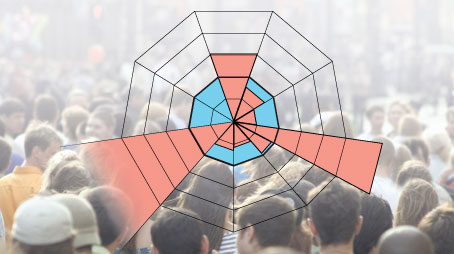| SEARCH |
-

Nov 17, 2015
Reflections on a three-decade legacy
The International Geosphere-Biosphere Programme (IGBP) will come to a close at t...
-
Nov 17, 2015
Use of and access to content on this website
Text and images produced by IGBP in house are free to use with appropriate credi...
-
Nov 12, 2015
Bella Gaia performance and panel discussion to mark IGBP's closure
A musical performance by Bella Gaia will celebrate the achievements and legacy o...
-

Towards Future Earth:
evolution or revolution?
During its three decades of existence, the International Geosphere-Biosphere Pro...
-
A personal note on IGBP and the social sciences
Humans are an integral component of the Earth system as conceptualised by IGBP. João Morais recalls key milestones in IGBP’s engagement with the social sciences and offers some words of advice for Future Earth.
-
IGBP and Earth observation:
a co-evolution
The iconic images of Earth beamed back by the earliest spacecraft helped to galvanise interest in our planet’s environment. The subsequent evolution and development of satellites for Earth observation has been intricately linked with that of IGBP and other global-change research programmes, write Jack Kaye and Cat Downy .
-
Deltas at risk
Around 500 million people worldwide live on deltas, but many of the world's deltas are sinking due ...
-
Climate change: the state of the science
A new data visualization released on the first day of the plenary negotiations at the UNFCCC’s clima...
-
Climate Change:
the State of the Science
Videos now online from the Stockholm public forum to mark the launch of the IPCC's climate report, 2...

Planetary boundaries and the urgent need for societal transformations
Side Event at 2nd Meeting of the UNCSD Preparatory Committee
NEW YORK
8 MARCH 2011, 1:15 - 2:45 PM
Conference Room: 6
PROGRAMME
MODERATOR: Andrew Revkin, New York Times
PLANETARY AND SOCIETAL RISKS: WHY WE NEED PLANETARY STEWARDSHIP
Professor Sybil Seitzinger, Executive Director, International Geosphere-Biosphere Progamme
Presentation (Powerpoint 11.2 MB)
SOCIETAL TRANSFORMATIONS TOWARDS A GREEN ECONOMY
Dr. Deborah S. Rogers, International Human Dimensions Programme (IHDP) on Global Environmental Change
Presentation (PDF1.6MB)
SCIENCE AND POLICY TOWARDS SUSTAINABLE DEVELOPMENT
Dr Gisbert Glaser, Senior Science Policy Advisor, International Council for Science, ICSU
Presentation (Powerpoint 0.2 Mb)
The Side event will promote the major international conference, Planet Under Pressure: new knowledge towards solutions. 26-29 March 2012, London.
www.planetunderpressure2012.net
Background
New scientific knowledge indicates that humanity has reached a point in history where continued development is jeopardized because the basis of development—the natural functioning of the Earth system—is at risk. Substantial societal transformation is urgently required to achieve a sustainable future. In March 2012, just prior to the UNCSD (Rio+20) conference on sustainable development, the international global-change programmes will hold a major international science conference, Planet Under Pressure: New Knowledge Towards Solutions. The conference will feature speakers and discussions on a range of topics related to planetary boundaries and societal transitions towards sustainability.
This side event will introduce the Planet Under Pressure conference, providing scientific leadership on issues of paramount importance to the UNCSD Rio +20 planning process: the green economy and sustainable development.
Planetary Risks
Civilisation has developed within the confines of Earth’s natural biological, physical and chemical systems. But since 1950, human production and consumption has accelerated to a point that it is pushing components of the Earth system beyond natural boundaries. There is an urgent need for all societies to confront these risks and develop solutions for planetary stewardship.
Green Economy
A “Green Economy” is often cited as one solution to the joint problems of environmental change and the need for development. But what exactly does Green Economy mean? While the emphasis to date has been on the sustainable use of economic and natural resources, there are many social, political and ethical considerations that must be addressed before societies can be socially as well as economically stable and sustainable over the long term. Major societal transformations are needed to achieve the goal of a Green Economy.
Science and Policy
How can scientists and policy-makers work together to develop the best solutions for both human well-being and environmental sustainability? What form might some of these solutions take? To promote a green global economy and improved institutional framework for sustainable development, new working relationships, policies and institutions must be developed and supported.

IGBP closed at the end of 2015. This website is no longer updated.
-

Global Change Magazine No. 84
This final issue of the magazine takes stock of IGBP’s scientific and institutional accomplishments as well as its contributions to policy and capacity building. It features interviews of several past...
-

Global Change Magazine No. 83
This issue features a special section on carbon. You can read about peak greenhouse-gas emissions in China, the mitigation of black carbon emissions and the effect of the 2010-2011 La Niña event on gl...
-
INTERGOVERNMENTAL PANEL ON CLIMATE CHANGE:
How green is my future?
UN panel foresees big growth in renewable energy, but policies will dictate just how big.
-
UK:
'The Anthropocene: a new epoch of geological time?'
Royal Society, Philosphical Transactions A




















